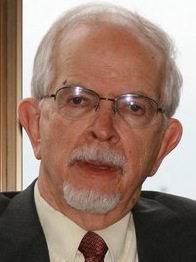"Scott Anderson, a veteran war correspondent and an author of both fiction and nonfiction, gives Lawrence's story a new spin by contextualizing him in a group biography. He weaves in the lives of three contemporary Middle Eastern spies: Curt Prufer, a German conspiring with the Ottomans to bring down the British Empire; Aaron Aaronsohn, a Zionist agronomist of Romanian origin, settled in Palestine; and William Yale, an East Coast aristocrat and an agent of Standard Oil who ended up in the service of the American State Department."
A month later, Janet Maslin is back with her review, equally laudatory. She writes:
"As to why such acclaim elevated one renegade Briton and his feat of creating a guerrilla Bedouin army, Mr. Anderson writes that the short answer may seem anticlimactic. His reason: 'This was a time when the seed was planted for the Arab world to define itself less by what it aspires to become than what it is opposed to: colonialism, Zionism, Western imperialism in its many forms.'"
In their reviews, both Alex von Tunzelmann and Janet Maslin avoid mentioning a key moment in Scott Anderson's book. It is an important episode Pope Francis should be reminded of should he choose to visit Tel Aviv.
The episode, described by Scott Anderson (pages 298 to 305, your Holiness, if I may be so bold) describes a successful propaganda campaign orchestrated by, among others, Aaron Aaronsohn, described by reviewer Alex Von Tunzelmann as "a Zionist agronomist of Romanian origin, who had settled in Palestine."
Scott Anderson (below) tells the story in his superb history of the period, Lawrence In Arabia: War, Deceit, Imperial Folly and the Making of the Modern Middle East.
The In in the title is underlined to distinguish it from Lawrence Of Arabia, the 1962 David Lean film.
Here is how the Anderson narrative is developed, summarized and quoted in part:
In the spring of 1917, the Turkish Ottoman ruler of Syria was Djemal Pasha. When the British army was poised to strike Gaza City in February, Djemal Pasha ordered the evacuation of Gaza City's entire population, a total or around 20,000 citizens. He wanted to clear the area for his army to move in and defend Gaza. After defeating the British in a cleared out Gaza, Djemal Pasha and his German commanders looked north.
They suspected that the British would next attack Jaffa (now a modern Tel Aviv). The city had a population of 40,000, of which around 10,000 were Jews and around 4,000 were Arab Christians, living alongside Arab Muslims. After the defeat in Gaza, the Ottomans were afraid that the British would attack Jaffa from the sea, using the city's smooth beaches for easy access.
The British defeat at Gaza came on March 26, 1917. Two days later, assuming the British would turn north, Dejmal ordered the evacuation of the entire population, Christians, Jews and Muslims. He gave the residents a week to prepare to move out. When Jewish leaders protested that the sacred Passover holiday was about to begin, Dejmal extended the evacuation order for an additional eight days.
Anderson writes: "By clearing the city, Djemal Pasha unwittingly set in motion one of the most consequential misinformation campaigns of World War I."
Ignoring the fact that Jews were joined by Christians and Muslims in the forced evacuation, the Zionist propaganda machine went into action, building the movement of the Jaffa population into an attack on all Jews of Palestine. The British Jewish Chronicle newspaper led the way with a May 4 story that carried the subhead: "Grave Reports -- Terrible Outrages -- Threats of Wholesale Massacre."
The Chronicle story continued:
"But even worse is threatened. For the Turkish Governor, Dejeml Pasha, has proclaimed the intention of the authorities [sic] to wipe out mercilessly the Jewish population of Palestine, his public statement being that the Armenian policy of massacre is to be applied to the Jews." That message swept "through Jewish communities in Britain, the United States and continental Europe and drew anguished appeals to their governments that some kind of action be taken."
(Note: You can view every article as one long page if you sign up as an Advocate Member, or higher).






